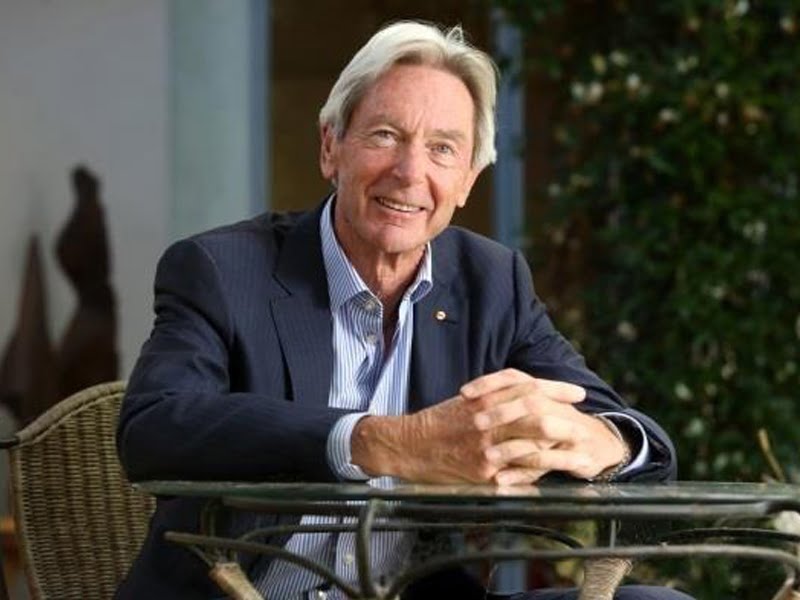It seems these days that the public sector believes that the secret to a good report is in a winning title. That can be the only reason for Innovation and Science Australia labeling its report—which is meant to be ‘a strategic plan for the Australian innovation, science and research system out to 2030’—Australia 2030: Prosperity through Innovation.
The department website conveniently puts ‘the 2030 plan’ in brackets after the title just to make sure we aren’t confused.
This latest contribution to the collection of innovation reports (anyone want a top-up on Dr Cutler’s Venturous Australia from 2008?) is replete with the now standard recommendations to address teacher quality, to import more skilled workers and do something about R&D programs. It distinguishes itself with the proposal for ‘ambitious National Missions.’

It is rare that I agree with anything Judith Sloan says in The Australian. Her description of the recommendations is close to my own. She writes, ‘They range from the obvious and inane—improve teacher quality, because no one has made that point before—to the completely insane.’
Let’s start with the inane. Recommendation 10 invokes, ‘Build on strength in accessing overseas talent through continuing and targeted updates to skilled immigration rules and improved marketing to suitable talent, especially through Austrade (with a focus on key target markets).’
I argue this is inane for two reasons. The first is that, like much of the plan, it is an old trope recycled over the whole decade of innovation plans. Dr Cutler’s recommendation 5.2 read, ‘Innovation policy should be aligned with immigration policies to ensure that they facilitate Australia’s access to the global talent pool. In particular, human capital should carry equal or more weight than economic capital in individual migration assessments.’
But the main reason that it is inane is that it is perpetually self-defeating of a reasonable human capital strategy. Every skilled employee imported is a job for an Australian graduate lost.
The immigration boosters will argue that the skilled arrivals create an eco-system of demand. The problem is it hasn’t emerged.
A creative—dare I say innovative—approach would be to tie immigration to training. Employers can only employ import skills if they are also funding skills development, through scholarships or cadetships.
The obvious includes the continued call to increase STEM skills through action at both secondary schooling and universities. But five days after Eddie Woo has been named Australian Local Hero for 2018 for his innovative use of YouTube to make maths accessible, our plan limply says ‘investing in quality teaching by improving the quality and content of in-service teacher professional development programs.’
There is already a shortage of trained maths and science teachers, and this can’t be fixed with retraining. It is now becoming a vicious cycle as the lack of teachers means less students can study higher level maths at school.
The plan is long on invocations to explore ‘opportunities to encourage participation in higher-level STEM subjects in high school.’ But the substance includes items well beyond Government control, such as ‘reinstating prerequisites into those tertiary courses in which discipline skills are necessary.’
The Government could provide scholarships for students with good school results in science and maths to study STEM subjects (NOT including life, environmental or medical sciences) at university.
The idea of ambitious National Missions is not of itself insane. But the description of them is, and the choice of the first one is totally loopy.
I am a great fan of the JFK quote ‘we choose to go to the moon, and the other things, not because they are easy but they are hard.’ But the practical reality is that Kennedy was choosing a proximate goal. As Richard Rumelt details in Good Strategy, Bad Strategy Kennedy made the decision after advice from Vernher von Braun (the model for Dr Strangelove) that it was achievable.
An important part of the advice was about beating the Russians. At the time the Russians were leading the Americans in the design of very big rockets. But a landing required even bigger rockets, which negated the Russian advantage, and turned American financial resource into an advantage.
We then ask how the genomic project to make us the ‘healthiest’ nation on earth stakes up.
Firstly, it is a slightly stupid objective. We have an economic problem of an aging population. Keeping more old people alive longer exacerbates that problem. Rather than innovating for prosperity we would be innovating to compound our economic woes.
We are told one of the strengths we have for this mission is that ‘Australia’s health and medical research community is well connected to the substantial international efforts currently under way in this area.’
How extensive the international effort in precision medicine was revealed the day after the report’s release by Alan Finkel and Bob Williamson in the SMH. They told us ‘As we enter 2018, almost 40 countries have already announced major precision medicine initiatives, including the US – now recruiting Americans for a database of a million genomes. China’s latest five-year plan commits more than $US9 billion to precision medicine research. The scale of ambition of the global leaders in this field is shifting the horizon of possibility for all.’
This is the antithesis of the pre-requisite of a national mission; this is a race we are unlikely to win.
However, we might just win the race in quantum computing, because of the research being led by our new Australian of the Year, Professor Michelle Simmons. The only references to computing in the plan are to the need for high-performance computing as a research tool, including for the genomics and precision medicine mission.
There was an old saying that no one got sacked for buying IBM. In the science and innovation field in Australia, no plan has ever been binned because it focused on health.
This one should be though.
David Havyatt is a former adviser to Federal ministers and a longtime observer of Australian innovation policy.
Do you know more? Contact James Riley via Email.
